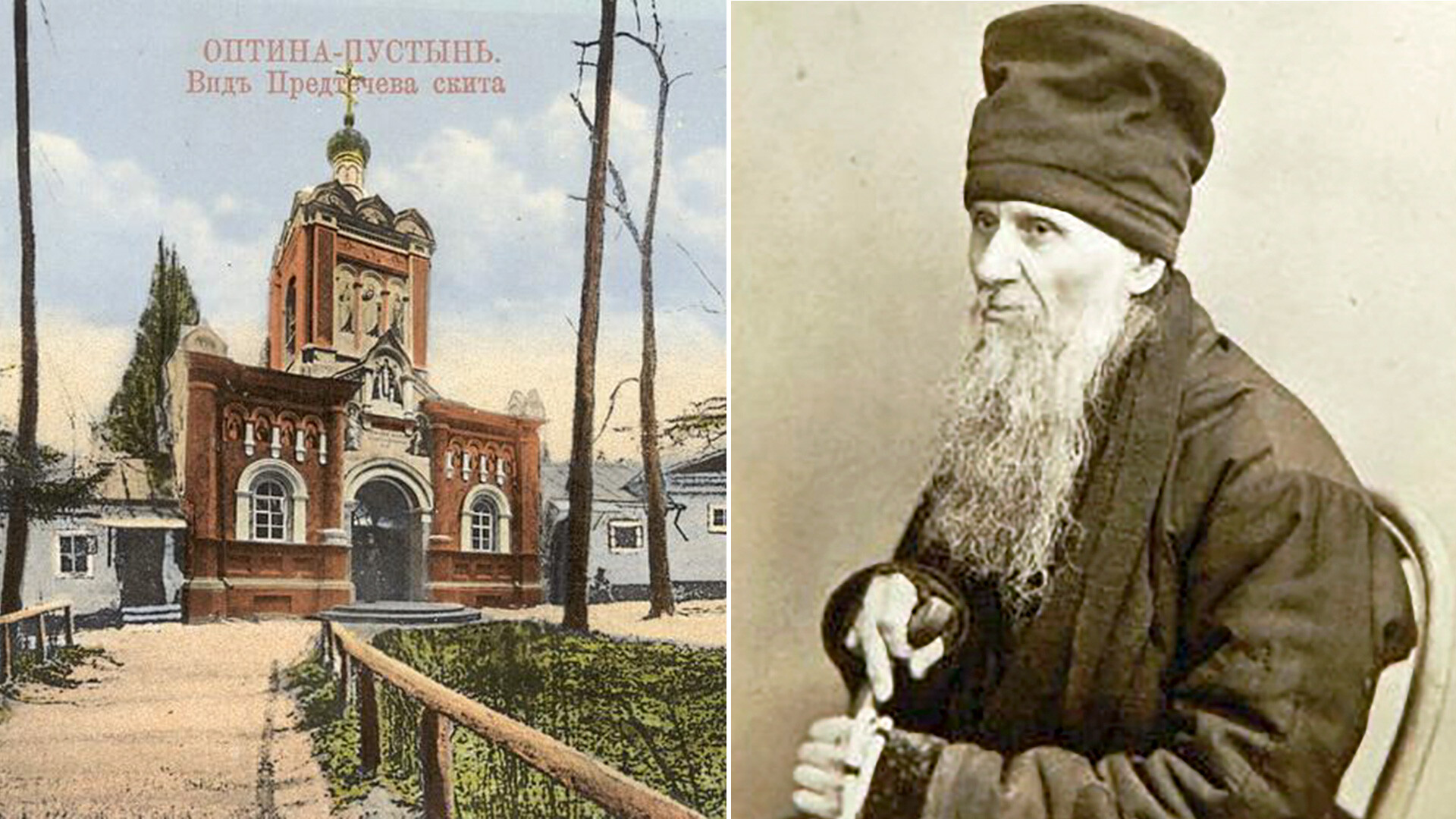
Optina Pustyn monastery (on the left) and Ambrose of Optina
Public domainDo you remember Father Zosima, a character in Fyodor Dostoevsky's novel ‘The Brothers Karamazov’? The youngest Karamazov, Alyosha, was an apprentice to this monk, who was honored as a saint during his lifetime.
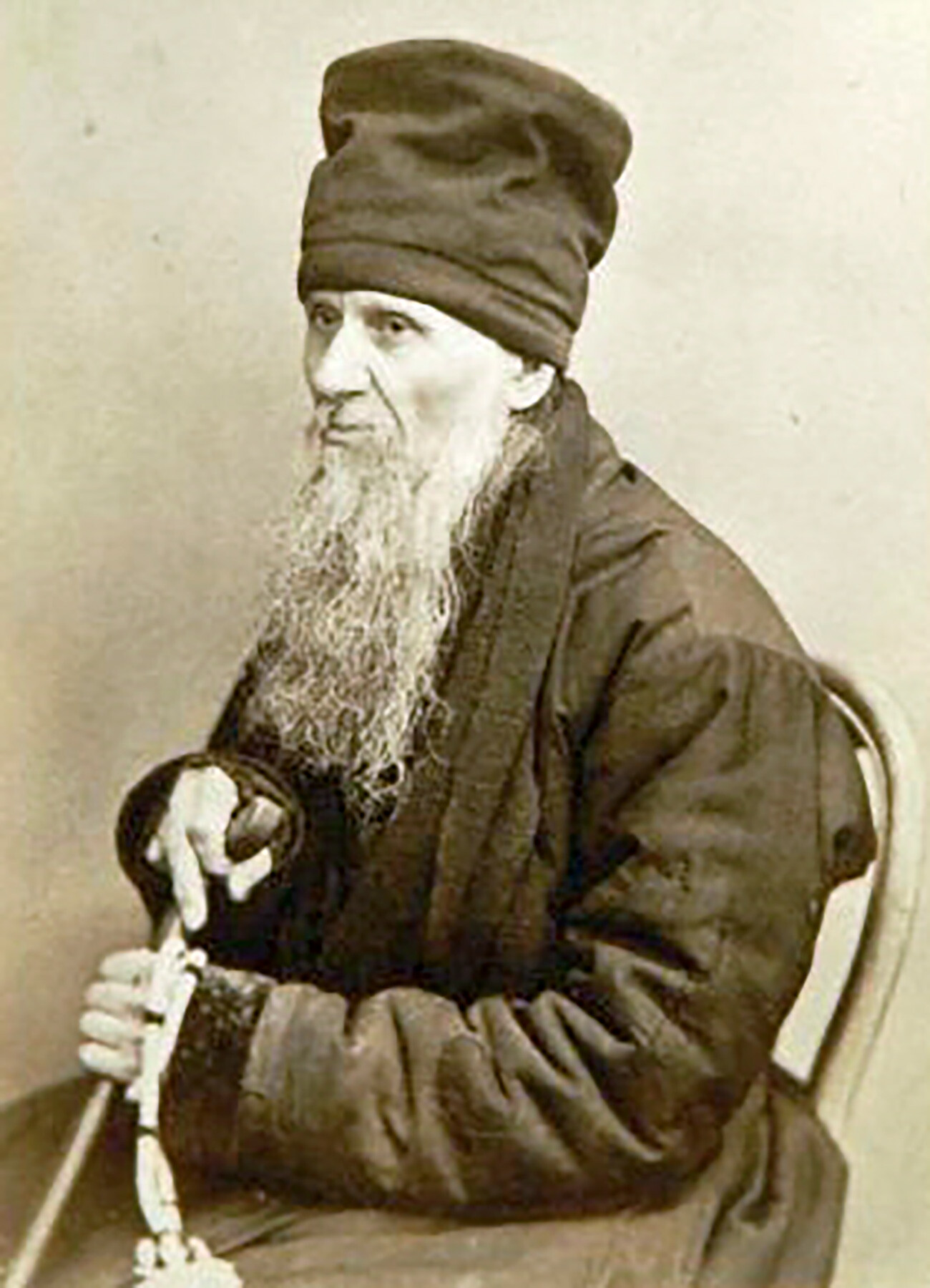
Ambrosius of Optina
Public domainIt is believed that the prototype of Zosima was Ambrosius (or Ambrose) of Optina, one of the most famous Russian elders, or how they are usually transliterated from Russian – ‘starets’. In the 19th century, he became a monk in the Optina Pustyn Monastery. Those who met Ambrosius used to say that he literally radiated holiness. Suffering people flocked to him from all over Russia and everyone went to him for advice or healing. Leo Tolstoy was among those who often sought a meeting with him and they talked many times.
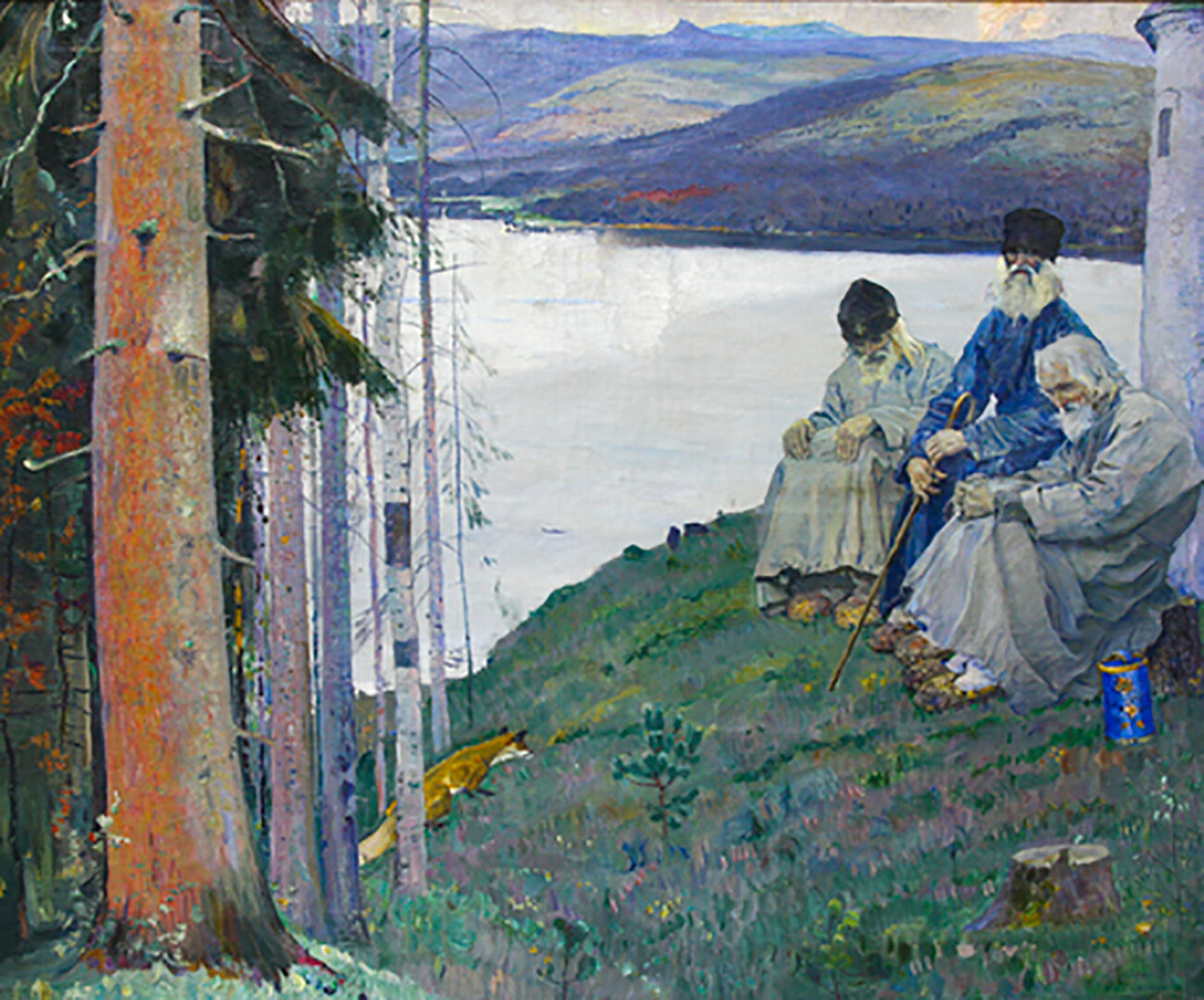
Mikhail Nesterov. Three schema-monks
Armenian National GalleryNot just monks, but also skimonks (who led a particularly ascetic way of life) became elders. It was believed that the gift of spiritual clairvoyance was revealed to them. The elders saw through people coming to them and could help them with their troubles and illnesses.
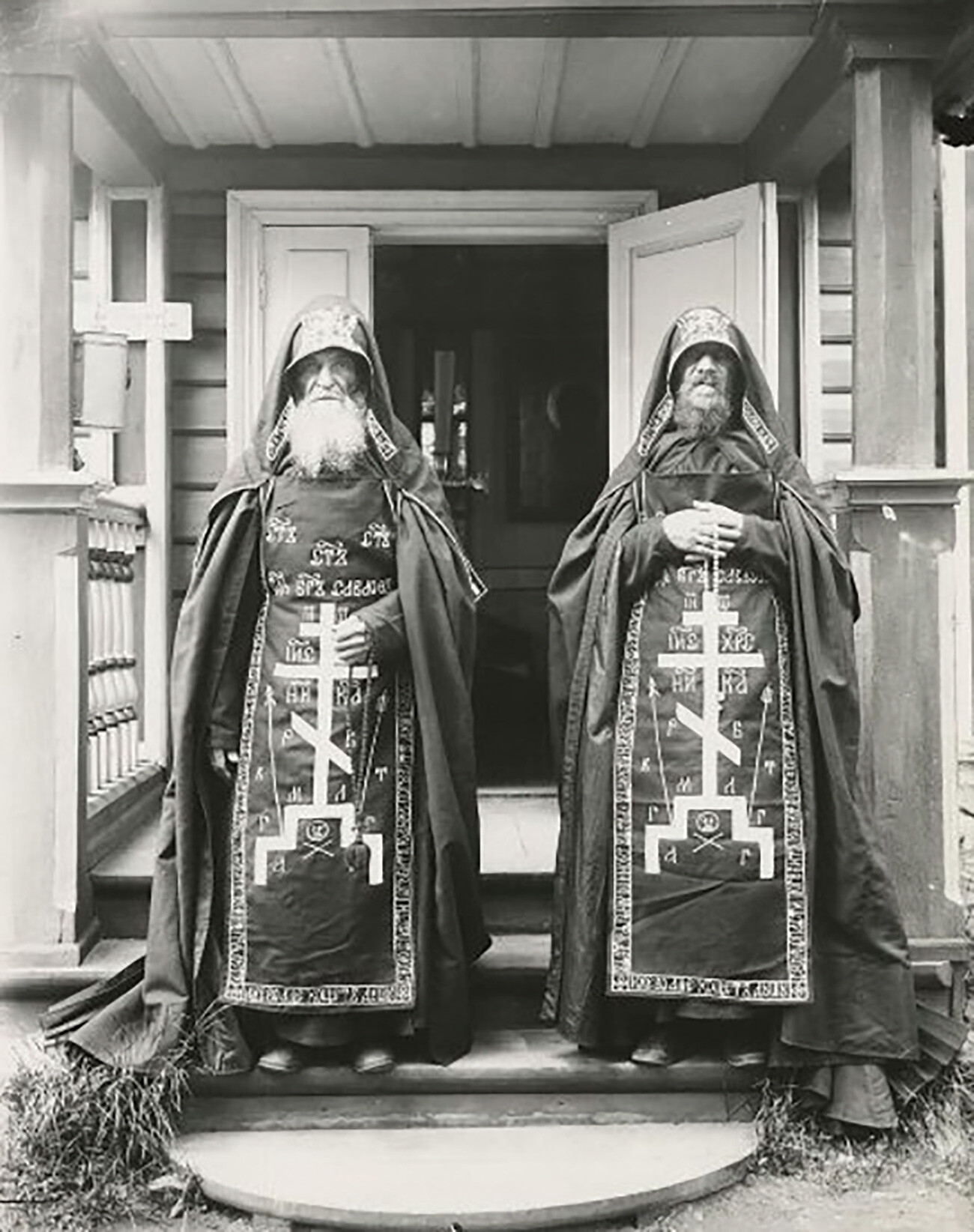
Skimonks outside St. Petersburg, 1892
Karl Bulla/MAMM/MDFThe phenomenon of eldership began in the Optina Pustyn Monastery with 14 Optina elders, later canonized as saints by the Russian Orthodox Church.
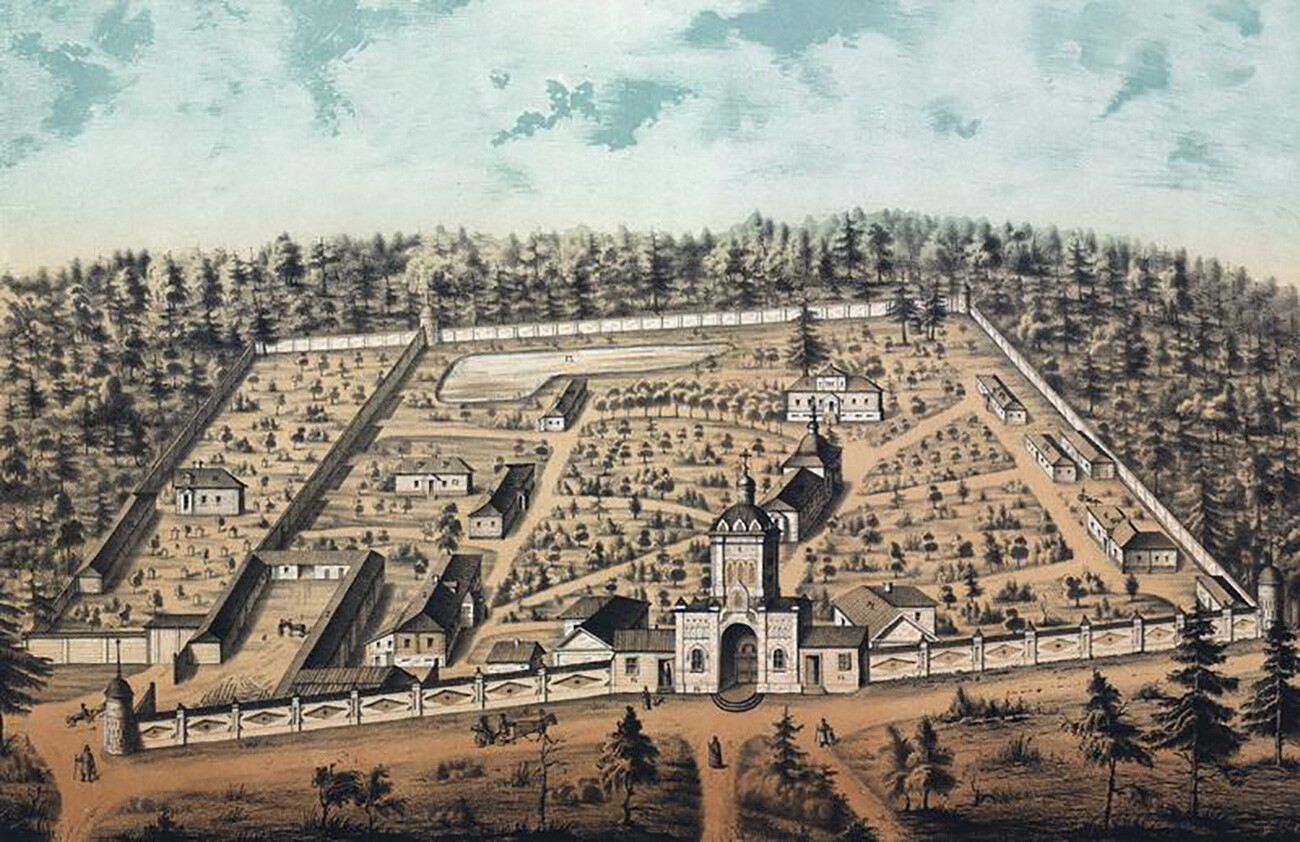
Optina Pustyn Monastery on a 19th century engraving
Public domain“Possessing the gift of clairvoyance, they enlightened, exhorted and comforted everyone, cured soul and body illnesses, warned against dangers, showed the right path in life and revealed the will of God,” Ivan Kontsevich wrote in his book ‘Optina Pustyn and Its Time’.
Dear readers,
Our website and social media accounts are under threat of being restricted or banned, due to the current circumstances. So, to keep up with our latest content, simply do the following:
If using any of Russia Beyond's content, partly or in full, always provide an active hyperlink to the original material.
Subscribe
to our newsletter!
Get the week's best stories straight to your inbox